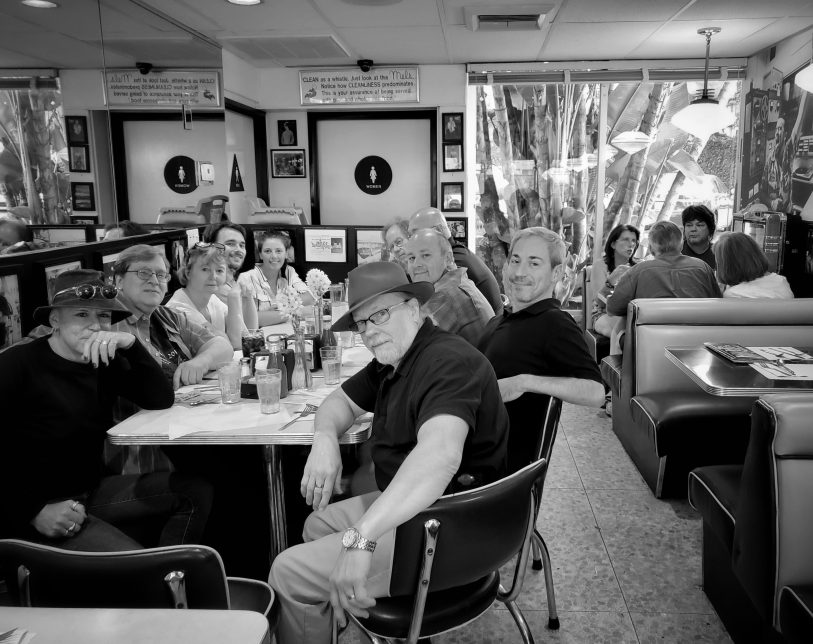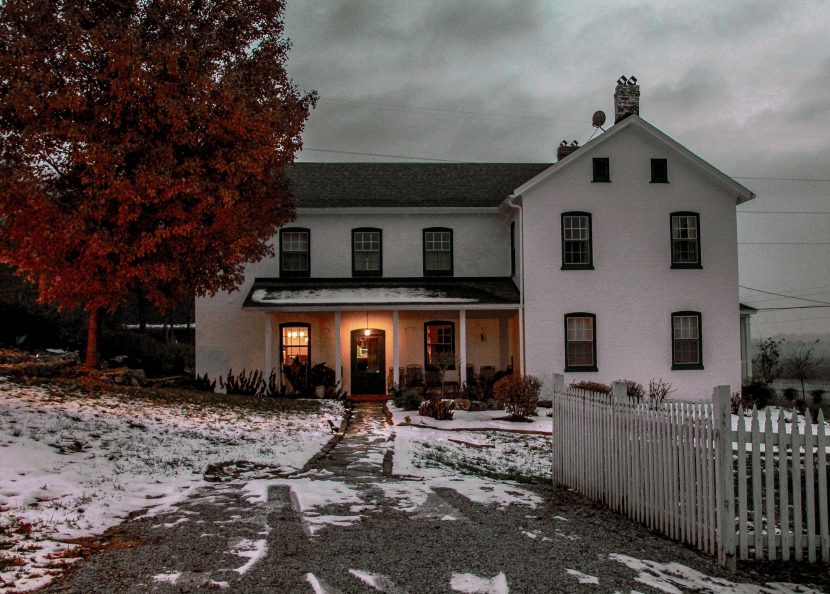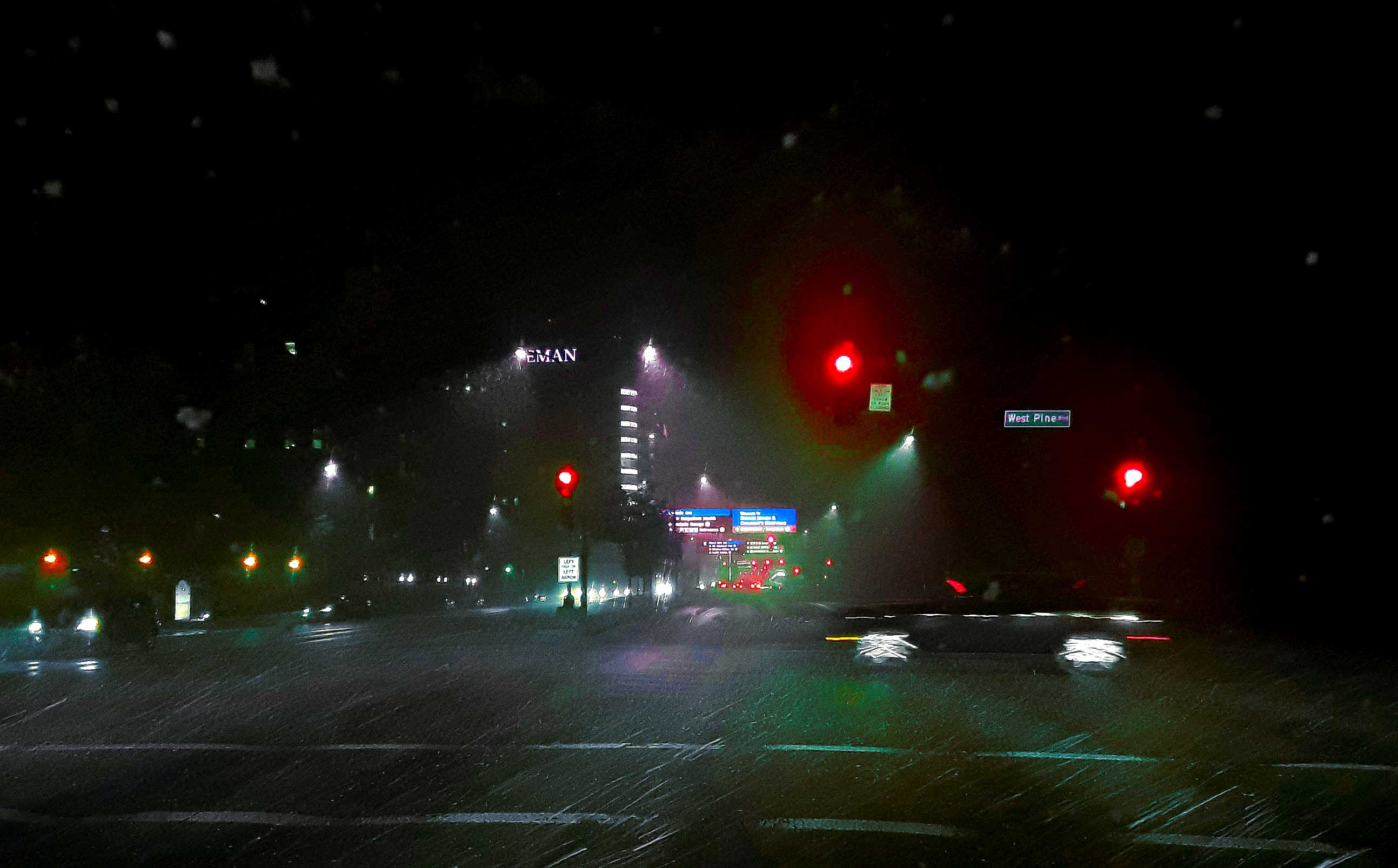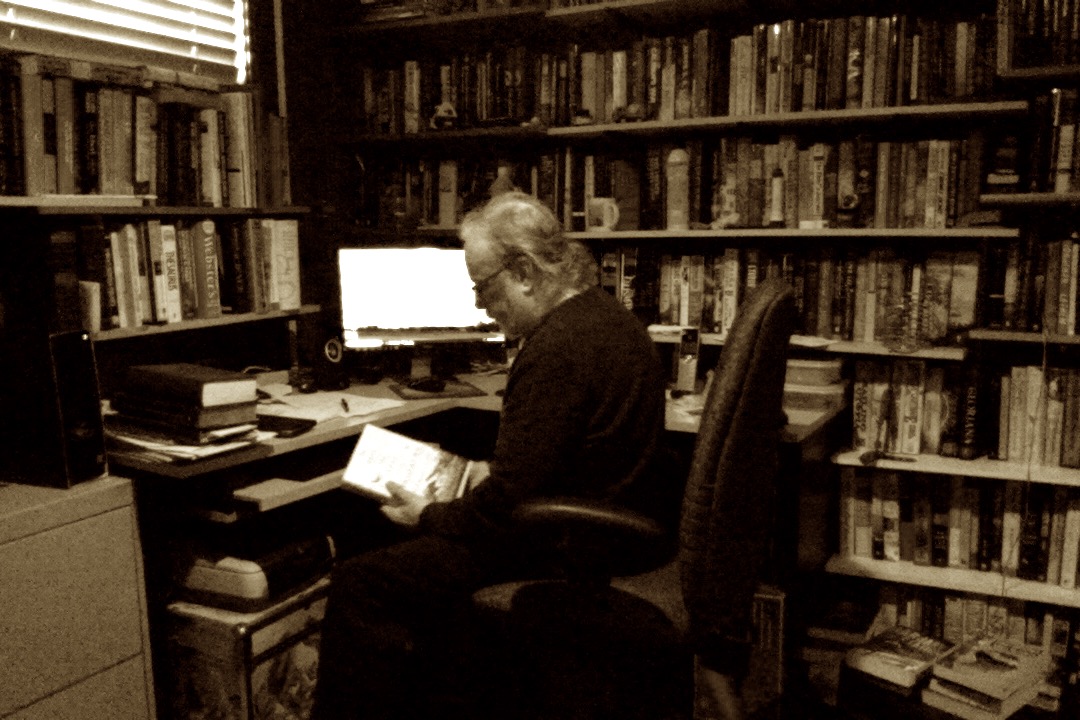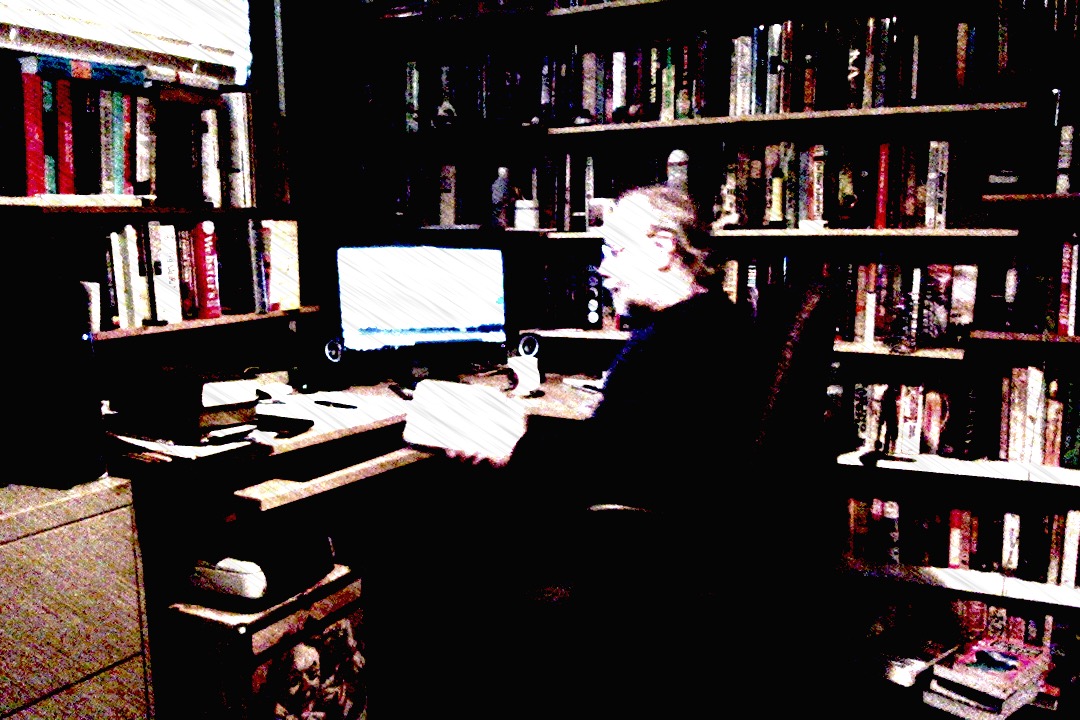Trying to understand our present circumstances can easily take one into a kind of archaeology. How did we get here from…where?
I see a lot of people putting up old videos of Ronald Reagan making statements which the present Republican Party would not support on a bet. The argument over Social Security being one of them.
Listening to Reagan today feels odd, like he was some kind of kindly old uncle who patted the air and told us all to calm down and eat our vegetables and play nice. He is, however, held in such high esteem by people who wouldn’t tolerate his old school moderation for a minute, and you have to wonder why.
That he’s dead and no longer around to criticize helps. But it doesn’t explain the heart-felt gratitude of those who are so far to the right of him that it’s surprising they’re still on the map.
To a younger generation, it must seem strange. What was it about Reagan that has turned him into an icon for people who seem bent on dismantling everything he seemed to have stood for?
Knowing what he stood for, though, is a problem.
He was elected as a reaction to the public perception of his predecessor as a weak president. Reagan was the modern era’s first MAGA president.
To be fair, he was elected at the end of a decade of lows in American history. A president left office in disgrace, we ended a war in ignominious defeat (though many believed otherwise), the economy was reeling from the combination of major cuts in spending for war materiel, the demobilization of millions of servicemen, expanding job opportunities for women and minorities, and a general malaise. The Seventies were split between those who wanted to party and those who wanted the kind of presumed clarity of the WWII era. Jimmy Carter was a genuinely good man in an impossible position, although in hindsight he was dealing with things, and given another term might very well have solved many of these problems without the consequence of fueling a rising cronyism and the beginnings of the deep divisiveness we’re living with now. The debacle in Iran did him in and we elected The Great Communicator.
He had another nickname—the Teflon President.† His administration resulted in 138 indictments and/or convictions for scandals, the largest of any president.† Scandals from grant rigging to the savings & loan crisis (a test run for 2008) to the Iran-Contra Affair. Somehow, none of this managed to tar his image and no hint of any wrongdoing was ever successfully laid at his feet.
And yet.
In my opinion, we are living through the consequences of Reagan and what I feel to be the greatest disservice he did to this country.† Done, I have no doubt, from the best intentions.† He saw himself as a savior, willing to do just about anything to rescue America from its own self.
A few years ago I was in attendance at an event with James Rosebush. He served as Nancy Reagan’s chief of staff. He had published a book, called True Reagan, and he was touring. The book is about Reagan’s religiosity. Apparently, Rosebush had had many conversations with Reagan and as the two of them shared deep religious convictions, many of these conversations revolved around that.† Rosebush contended that Reagan was a Biblical scholar. During the presentation, there was even a hymn sung, Reagan’s favorite (no, I do not recall which it was).
Rosebush said something that night that sent a chill down my backside but which almost immediately put the last 30 years in a clear context. He claimed that one of Reagan’s core beliefs was that government, especially large government, was an obstacle to people knowing Jesus. That it was one of his missions to do something about that.
Hence the whole shrinking the size of the federal government thing he kicked off.
But it also makes one of Reagan’s most famous statements make a completely different kind of sense.† “The most terrifying words in the English language are: I’m from the government and I’m here to help.”
Mileage varies, of course, and individually people will have different experiences, but when you consider the size and complexity of this country and all the services our governments, state, local, and federal, have performed, the United States has had possibly the most successful government in history. Never mind the mean-spirited detractors who spin it with hearsay and lie and chafe under regulations.† Now that we have someone who actually is tearing things apart, as these institutions begin to fail we may come to see how well they worked before because we never noticed them till they no longer functioned.
But to the point that Reagan saw government as a barrier to god, that statement takes on a wholly different meaning.
The problem, of course, is that we did not know he believed that. Rosebush said Reagan knew he could never say so in public, because he knew he could never get elected.
I’m sorry,† but that’s fraud. I believe we had a right to know that’s how he felt. Because most people who voted for him did so no doubt under the mistaken belief that he intended to make government work better.† I can say that because throughout our history, that has been a basic assumption in ever election—vote for this guy because he’ll make things run better.
Not tear them apart.
Reagan’s antipathy toward the Soviet Union clarifies with this as well. Granted, most Americans thought of the Soviet Union as an enemy, but there was certain fervor Reagan brought to it that went a bit beyond.† He raised the deficit and the national debt to field a war machine the sole purpose of which was to spend the Soviet Union into penury. But the fact remains that he was Republican, running in a party that traditionally viewed itself as the more fiscally responsible of the two major parties, and he began a decades-long cycle of mounting debt incurred under Republican administrations. Along with this was the rise of the Grover Norquist arm of conservatism which sought actively to suffocate the federal government.
This is the legacy of this unstated and unrevealed philosophy. The reversal of the parties in terms of spending and fiscal responsibility can be put on Reagan.
Two other things he did which, combined with the above, put him the running for one of our most destructive presidents. He opened the door to a politicized religious movement that has vexed us ever since and he initiated the Second Gilded Age with the absurdity of trickle-down economics.
Neither of those two had the kind of apparent impact they later manifested, but he started it, and, I believe, in support of his unstated belief that government must be reduced to a size where it can do almost nothing for people.
Because, after all, government gets in the way of people knowing god.
At this point, it would be useful to point out what may be, for some, a distinction without a difference. We are often challenged by charges of anti-religiosity when a programmatic measure is resisted or struck down as unConstitutional. School prayer, for instance. What seems obvious to those with less ideological intentions is that the idea of banning school prayer is absurd. No one can do that. Prayer is personal. How can it even be monitored? No one can stop a child from praying in school—silently, at any time. What is demanded, however, is not prayer but recitation in support of attempted conformism. Those who insist on such demonstrations, whether they realize or admit it, are not seeking a freedom to pray—which is private and personal and unrestricted—but the permission to force adherence by public observance. The difficulty should be obvious in any example of divergent religious beliefs.
This, among other things, becomes a rallying point for the belief that government interferes with religion. The day the government sends agents into a church and orders the congregation to cease worship is the day you will have that.
I point this out to make it clear that what has resulted from Reagan’s unstated beliefs is not in support of religion as a personal expression but an ongoing debate over the texture, tone, and tenor of our public identity. And before it is taken that I mean something akin to a fashion statement, it is important to remember that when you insert these changes into public discourse, you are making a statement about what is acceptable, which eventually can become matters of law. This is not benign. The simple answer to school prayer has always been: let each child pray silently according to his or her own creed, which has never been acceptable to the vocal advocates of formalized school prayer.
Because Reagan also allowed the intense politicization of the Religious Right in the form of Jerry Falwell’s Moral Majority. As an example, he could not have been more obvious in his preferred form. Falwell was strident, divisive, arrogant, and something of a charlatan. His was a programmatic christianity that sought, in contrast to all past fundamentalist movements, political influence if not direct political control.† Apologists will say Reagan only used them to stir up a base of voters with no real intention of ceding anything to them. If so, then that, too, would have been a species of fraud, but one we have become accustomed to, at least in a naively cynical way. By the end of his presidency, however, the lines had been clearly drawn and we see the battlefield in stark terms today.
At the same time, this movement, such as it was at the time, was gifted with an issue that allowed it to shift debate from the tractable to the unanswerable: abortion. What this did for those who have fueled the divisiveness is allow for transfer of concern from systems to identity in a way that had not been done since christianity overwhelmed pagan traditions.
Most problems in human relations can be addressed if not solved through practical methodologies—systems. Most of the 20th Century in the United States and, arguably, throughout the world has been a period of aggressively creating institutions and systems for dealing with what at one time or another have been profound problems, from food distribution to health care to legal equity for citizens. We were actually getting pretty good at it, so much so that it seemed possible that we might solve all the major problems and establish the kind of continental if not global future once considered the pipe dreams of science fiction. (We’re still on track in many areas, present calamity-politics notwithstanding.)
Granted, no system is perfect, and granted something always go awry. People get overlooked, ignored, sometimes trampled.† (But if you want to look at an example of how successful our system-building has been, as a rough measure, look at how much free time and access so many people have today to complain about how bad they have it. Not that many people don’t have it bad, but compared to 60 or 70 years ago, more of us are enjoying the benefits of effective problem-solving to the point that too many people have no idea what it is they’re trying to dismantle or how bad things would become if the dismantling is successful.)† But we can look back and see a clear progress. We’ve been getting there.
But systems are complex and understanding them, especially in terms of why something hasn’t been fixed yet, requires the kind of time and attention most of us do not have. When election time rolls around, many of the issues are abstract, heavy on detail, and necessitate a grasp of nuance in causal relationships that, frankly, we pay our representatives to understand so we can get on with our lives.
Along comes Reagan and, more importantly, the iconoclasts riding in on his coattails. In order to sell their program—and in order for the Religious Right to gain and maintain traction in the political sphere—the attention of the voter has to be moved from the mind-numbing tangle of systems to the clear-cut, heroic lines of indentitarianism. Namely, the struggle of Good versus Evil.
Abortion was tailor-made for that.
Reagan was less concerned about that, though, than about the Soviet Union, and given his apparent belief that government interfered with people knowing god, the Soviet Union for him could be nothing but an exemplar of Government As Satan. For him, this was not a struggle over competing economic systems and their concomitant expressions of colonialism—this was about Right versus Wrong, Virtue versus Sin, God versus godlessness.
So he began the tradition of sapping our national wealth to fund a crusade against evil in the world in the form of the Soviet Union.
There was, frankly, never much enthusiasm for trying to find common ground with them or, given victory in the struggle, providing aid to see them through into a workable polity. Because that would have meant building exactly what Reagan thought was wrong in the world—a viable and rather extensive government.
This also undid him in the Iran-Contra Affair. His convictions about communism being irreconcilable with godliness led him to fund brutish men who used those arms to destroy schools and clinics. He could not see past his preconceptions to understand that, while he might disagree philosophically with the Sandanistas, they had been duly elected by their people, and the targest of the right-wing Contras were sick people and children along with federal troops. It was a shameful abuse of his office.
Reagan exhibited a deep and largely innocent faith in people being basically able to do anything they needed to do, without state assistance of any kind. He must have felt that without the tremendous burden of soviet state apparatus, the Russian people would just naturally have developed into a benign community of self-sufficient American clones. If he felt that way, he did not understand the nature of his own people, either.
Consider another action he took that has resulted in a massive problem today: according the Rosebush in the same lecture, Reagan “did not believe in psychiatry or mental health problems.” He gutted HHS, if you recall, and shut down the mental health institutions that had been caring for the disabled. They ended up on the street and many remain there because there is nowhere for them to go. PTSD does not exist, bipolar disorder is a myth, and I suppose schizophrenia is possession by devils and the sufferers only need to find god.† However far down the line he actually thought this through, the result has been a chronic homeless problem that had the added “virtue” of demonstrating the insufficiency of government of solve problems.
As for his economic policies, that was clarified as well. He based his program—supply-side or, popularly, Reaganomics—on something know as the Laffer Curve. I wrote about it at the link. It has been obvious for a long time that he did not understand economics well enough, if at all, to see this for the nonsense it was. (His vice president understood, hence his smoke and mirrors comment, but by the time George H.W. Bush was in office we were wedded to it.) I don’t believe it would have mattered. It looked like a way to get the government out of economic regulation, which by extension would have ultimately crippled the government, which would be consistent with his unstated beliefs. For what it’s worth, I also do not believe he expected it to really hurt anyone. I think he naively accepted reassurances from business that if he “took the chains off” of course they would do right by the country.
(A side note here: Reagan oversaw the pillage of our high-tech industrial base. Not many people are aware that during his two terms over 280 companies fell prey to the corporate raiding of the day and were purchased by foreign owners, primarily British and Japanese. These were not companies that just made lightbulbs and tv remotes, but many companies doing classified work for our government and had developed very sophisticated methods for building very complex things that gave us a considerable edge globally. Upon purchase, though, those methods if not necessarily the products became foreign property and we lost vital edges. Many of these companies petitioned Washington for protection because of the highly-sensitive nature of what they did, but Reagan grandly declared that we “have no industrial policy” and allowed them to be sold out of the country. To my mind, this shows no Machiavellian long-game, but a fundamental disconnect and a lack of understanding about the nature of what was happening and what we were losing. But it is consistent with his opinion, apparently, that government should stay out of everything. See: Anthony Campagna, The Economy In The Reagan Years)
They did right by themselves, which has resulted in the morass of stagnant wages and endless arguments over cost-of-living, and the obscene imbalance in wealth.
Once begun, the diminution of our public faith in our institutions proceeded apace, to the point where we collectively mistrust everything and grope for tangible meaning that might once have simply been there had we known at the time what it was this man, who remains for many one of the greatest presidents we ever had, truly believed. Now we are faced with these pocket movements of denying everything from the Holocaust (a perennial favorite) to the Anti-vaxxers and climate change denial. These are all aspects of systemic knowledge and in the case of vaccination of systemic problem-solving (successfully, I might add) but which have been tied to big government and somehow in opposition to a moralistic self-image that rejects codification.
So, based on these things—supply-side economics, the decoupling of institutions from public faith, and the shift in public discourse from problem-solving to indentitarian posturing—I put in my bid for Reagan being placed near the bottom. And the irony is, he probably had no idea it could get so bad. He was basing his iconoclasm on a firm faith in the very institutions he had launched his supporters to destroy. He had a deep, quaint faith in American Goodness that was unsupportable then and seems badly mauled now. The average American probably is, by most measures, a good person, certainly not malevolent, but once you rise through the layers to where power politics and money mix poisonously, Goodness is only something talked about at the bottom of a ledger or the tally of a poll.
Government interferes with people knowing god.
There are two major things wrong with that idea. The first comes out of a twisted notion that people only go to church when things are bad. So if we solve problems and fix our institutions and secure the common welfare as we can, this belief says we will lose faith in god.† Why worship god when we can do this all for ourselves?
Well, that’s a rather punitive and stunted view of religious faith. Not uncommon. But even if it were true, for the adherents to justify wrecking the well-being of people they don’t know in the cause of pushing them out of necessity into a set of beliefs that may not be free and genuine is vile.† (Of course, there is a corollary belief that successful states are automatically decadent and this is ungodly. Well.)
The other thing wrong with this, is a simple misapprehension of that old saying about deities working in mysterious ways. What if those successful institutions are the natural expression of a faithful community?
Either way, to hold such a conviction and then run for high office and allow people to believe you will do the right thing by them—well, you may, regardless, but to withhold that information means you don’t trust your own message or the people you’re delivering it to. We had a right to know the man we were electing as well as possible.
Now we have another of these Make America Great Again people in office, only there is no good-natured, naive uncle in that suit but a venal, corrupt narcissist who likely would never have gotten close to this had the stage not been set by a man still worshiped and longed-for who could not now, as he was then, get elected to a state legislature for the party he once led.
Government interferes with people knowing god.
And we wonder why there is a separation of church and state built into our constitution.
